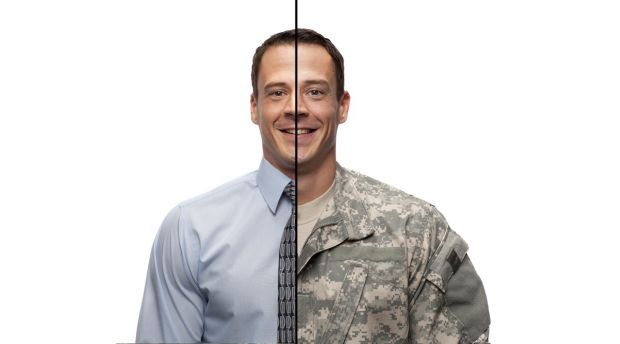Difficulty Finding a Job after Military Service
Post Views 7I am a retired 44-year-old military person with 24 years of experience in a wide variety of fields. These include teaching/instruction, resource management, maintenance, HR and personnel, logistics, and disaster preparedness. I have supplemented my time in the service with a Master’s degree in management and several two-year degrees; and I am computer literate. It seems that I can’t buy an interview by listing my accomplishments and education. I have a lot of management experience, but not a lot of specific civilian career experience in a specific field. Where do I go from here? What can I do to get people to recognize the value of my experience and the short learning curve I would have to break into a new career field?
Thanks in advance,
Tim
Dear Tim:
I’m not going to serenade you with nauseating pleasantries – switching gears at your stage of the game will certainly be a challenge. But with your background, you should have no problem with challenges. So what’s a guy like you supposed to do? Be creative! You are obviously a very bright and multi-talented individual who, over the past twenty-four years, has amassed quite an amazing skill set.
The key here is to pinpoint your audience and create a targeted, situation-appropriate message. At the same time, you don’t want to scare them away with your wide array of skills and military background.
That being said, the first thing you need to do is decide what you want to do. As a veteran military man you must be quite aware of the shrinking but still incredibly large civilian industrial military complex of federal defense contractors out there.
After all those years you may have many contacts stuffed in your rolodex. Yes? Good – so start calling people. Your contacts and expertise in military affairs make you quite attractive to companies doing business with the Department of Defense.
Now it is resume time, your one chance at making a fantastic first impression. Don’t overwhelm your prospective employers with a chronological resume in which they have to fish around to find your skills. Instead, use a skills-focused resume that highlights the skills you want to sell. For example, if you are looking to go into recruiting, emphasize your recruiting and HR skills, not your disaster preparedness operations skills. While it is nice that you can mobilize 28,000 aid workers to distribute 5,000 kilos of rice, blankets, and medicines in Somalia, your prospective employer is looking for you to recruit candidates – so give them what they want to see. Nevertheless, don’t be afraid to use your other attributes and experience to enhance the primary skills you are trying to sell.
At the end of the day, personal contacts are the best way for you to land a position that you truly want, and that’s where I’d suggest you concentrate the most effort. Best of luck!
Difficulty Finding a Job after Military Service by Granted Contributor



 Ask the Genie: High School Teacher Wants to Return to Business World
Ask the Genie: High School Teacher Wants to Return to Business World  From Economist to Applications Developer: How to Make the Switch
From Economist to Applications Developer: How to Make the Switch  Ask the Genie: How Do I Choose Between So Many Career Paths?
Ask the Genie: How Do I Choose Between So Many Career Paths?  Ask the Genie: How to Turn Down a Job Offer with Class
Ask the Genie: How to Turn Down a Job Offer with Class  What Careers Are Available in International Business?
What Careers Are Available in International Business?  How to Make a Radical Career Change
How to Make a Radical Career Change  Graduating Soon – Choosing a Career and Starting the Job Search Process
Graduating Soon – Choosing a Career and Starting the Job Search Process  A Career in Counseling Could Be Right for You
A Career in Counseling Could Be Right for You